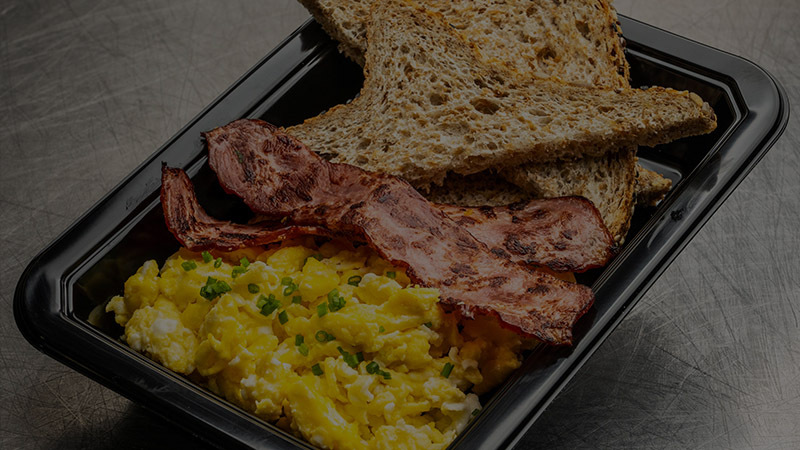It’s not how you start; it’s how you finish. There’s a lot of truth to that saying because a strong finish often means achieving success.
But you know what? Sometimes a strong start is the most important thing toward achieving success. It sure can be for your eating habits.
According to a research study, eating a high-protein breakfast may help you eat less throughout the day.
The study analyzed the food intake, nutrition, and physical activity of more than 9,000 adults, with the median age of the participants being about 46 years, and what scientists found was a direct correlation between protein intake at breakfast and overall food consumption the rest of the day.
Simply put: The higher the protein intake in your first meal of the day, the less you eat the rest of the day and vice versa.
A big reason, the study concluded, was that those who ate low-protein breakfasts tended to eat breakfasts composed of energy-dense foods, such as those high in saturated fats, sugars, and salt. Those may taste good, but they also boost energy throughout the body. And with more energy comes a higher metabolism, which means eating more food, and if that food continues to be energy dense, you can probably see the vicious cycle starting here.
So why focus on protein?
There are three macronutrients — fats, carbs, and protein — that affect your body in different ways.
Of the three, studies show protein is by far the most filling. This is partly because protein reduces your level of the hunger hormone ghrelin. It also boosts the levels of peptide YY, a hormone that makes you feel full.
These effects on appetite can be powerful. In one study, increasing protein intake from 15% to 30% of calories made overweight women eat 441 fewer calories each day without intentionally restricting anything.
How much protein?
OK, so you now know a high-protein breakfast will keep you feeling full longer, which can then curb overeating and cravings throughout the rest of your day. But you might be wondering, what is a “high-protein” breakfast.
Obviously, like everything with health, each person’s dietary needs are unique. However, there are some generalities that can help you plan your meals. For instance, most generally agree a main meal (breakfast, lunch, or dinner) should have at least 25 to 30 grams of protein in it, and snacks should try to hit 10-15 grams (something very few common snacks even come close to actually hitting).
So, let’s look at breakfast.
Most common breakfasts are high in carbs – your cereals, toasts, pancakes, and oatmeals, all of which have less than 10 grams of protein per serving. So, unless you’re being proactive in making modifications or adding something high in protein to your morning, you’re definitely going to have a deficiency in protein to start your day.
However, something as simple as adding two hard-boiled eggs, Greek yogurt, or two tablespoons of nut butter can suddenly get your breakfast into the high-protein category. There are 6 grams of protein in just one egg (3.6 g in one egg white), which means two can truly make a significant difference in how you feel after a meal—the same thing with adding a morning protein shake. And if the idea of eating eggs or protein shakes every morning sounds dreadfully boring, there are tons of food ideas that are as high in flavor and diversity as they are in protein.
Ultimately, you want to succeed in your health goals, and refocusing your efforts on breakfast looks to be one of the best ways to get an early head start on them.
- What’s in Season? June Produce Guide - June 3, 2025
- Why 10K steps a day is so important - May 19, 2025
- 3 Things Pro Athletes Know About Nutrition (and you should, too) - May 17, 2025








